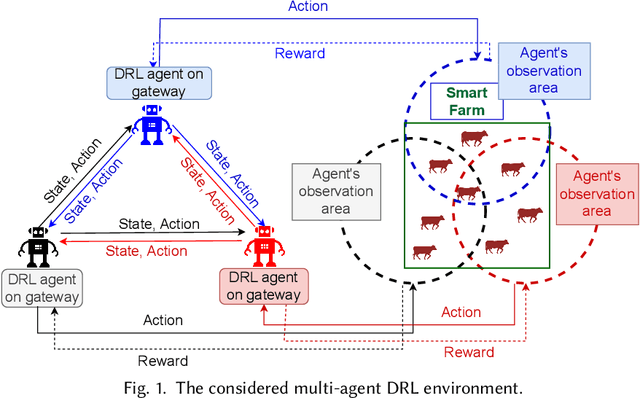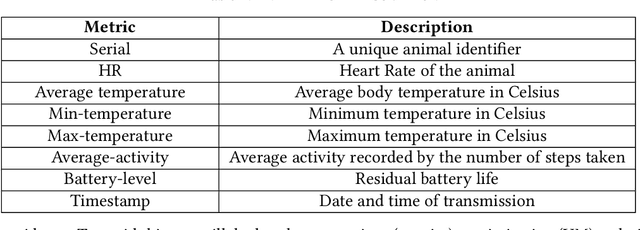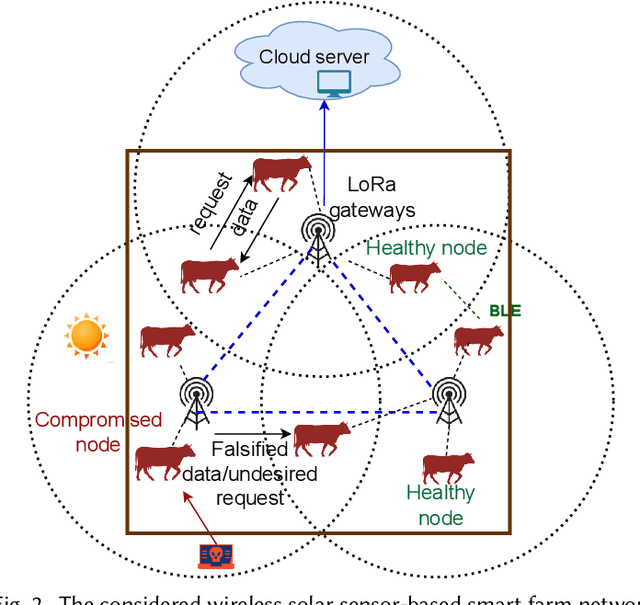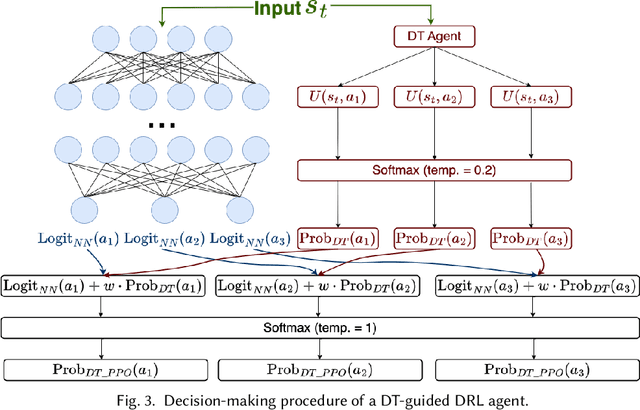Dong Sam Ha
The Bradley Department of Electrical and Computer Engineering, Virginia Tech, Blacksburg, Virginia, USA
Behavior-Specific Filtering for Enhanced Pig Behavior Classification in Precision Livestock Farming
Jul 28, 2025Abstract:This study proposes a behavior-specific filtering method to improve behavior classification accuracy in Precision Livestock Farming. While traditional filtering methods, such as wavelet denoising, achieved an accuracy of 91.58%, they apply uniform processing to all behaviors. In contrast, the proposed behavior-specific filtering method combines Wavelet Denoising with a Low Pass Filter, tailored to active and inactive pig behaviors, and achieved a peak accuracy of 94.73%. These results highlight the effectiveness of behavior-specific filtering in enhancing animal behavior monitoring, supporting better health management and farm efficiency.
Sustainable Smart Farm Networks: Enhancing Resilience and Efficiency with Decision Theory-Guided Deep Reinforcement Learning
May 06, 2025



Abstract:Solar sensor-based monitoring systems have become a crucial agricultural innovation, advancing farm management and animal welfare through integrating sensor technology, Internet-of-Things, and edge and cloud computing. However, the resilience of these systems to cyber-attacks and their adaptability to dynamic and constrained energy supplies remain largely unexplored. To address these challenges, we propose a sustainable smart farm network designed to maintain high-quality animal monitoring under various cyber and adversarial threats, as well as fluctuating energy conditions. Our approach utilizes deep reinforcement learning (DRL) to devise optimal policies that maximize both monitoring effectiveness and energy efficiency. To overcome DRL's inherent challenge of slow convergence, we integrate transfer learning (TL) and decision theory (DT) to accelerate the learning process. By incorporating DT-guided strategies, we optimize monitoring quality and energy sustainability, significantly reducing training time while achieving comparable performance rewards. Our experimental results prove that DT-guided DRL outperforms TL-enhanced DRL models, improving system performance and reducing training runtime by 47.5%.
SusFL: Energy-Aware Federated Learning-based Monitoring for Sustainable Smart Farms
Feb 15, 2024



Abstract:We propose a novel energy-aware federated learning (FL)-based system, namely SusFL, for sustainable smart farming to address the challenge of inconsistent health monitoring due to fluctuating energy levels of solar sensors. This system equips animals, such as cattle, with solar sensors with computational capabilities, including Raspberry Pis, to train a local deep-learning model on health data. These sensors periodically update Long Range (LoRa) gateways, forming a wireless sensor network (WSN) to detect diseases like mastitis. Our proposed SusFL system incorporates mechanism design, a game theory concept, for intelligent client selection to optimize monitoring quality while minimizing energy use. This strategy ensures the system's sustainability and resilience against adversarial attacks, including data poisoning and privacy threats, that could disrupt FL operations. Through extensive comparative analysis using real-time datasets, we demonstrate that our FL-based monitoring system significantly outperforms existing methods in prediction accuracy, operational efficiency, system reliability (i.e., mean time between failures or MTBF), and social welfare maximization by the mechanism designer. Our findings validate the superiority of our system for effective and sustainable animal health monitoring in smart farms. The experimental results show that SusFL significantly improves system performance, including a $10\%$ reduction in energy consumption, a $15\%$ increase in social welfare, and a $34\%$ rise in Mean Time Between Failures (MTBF), alongside a marginal increase in the global model's prediction accuracy.
 Add to Chrome
Add to Chrome Add to Firefox
Add to Firefox Add to Edge
Add to Edge